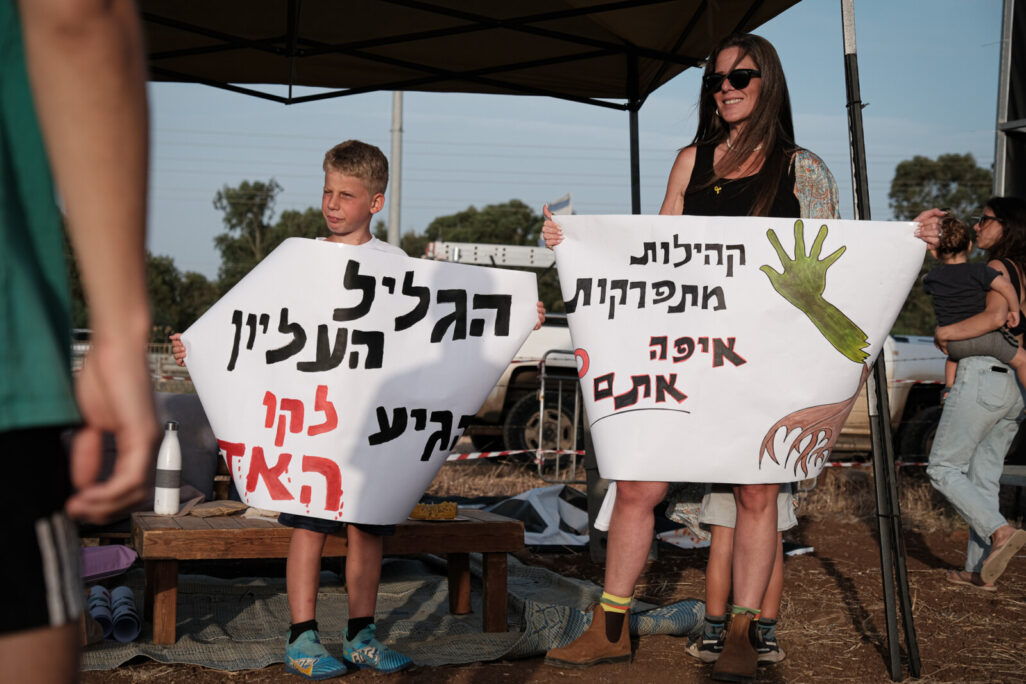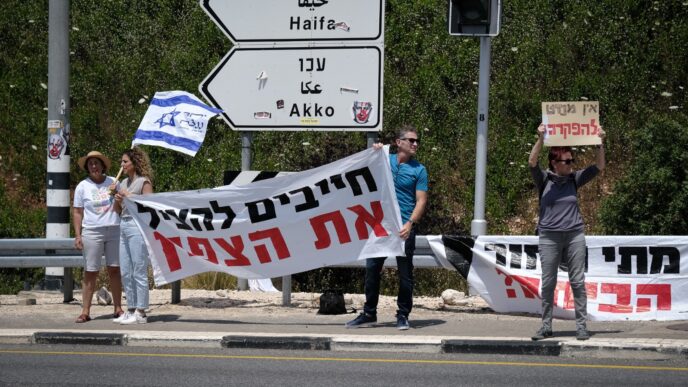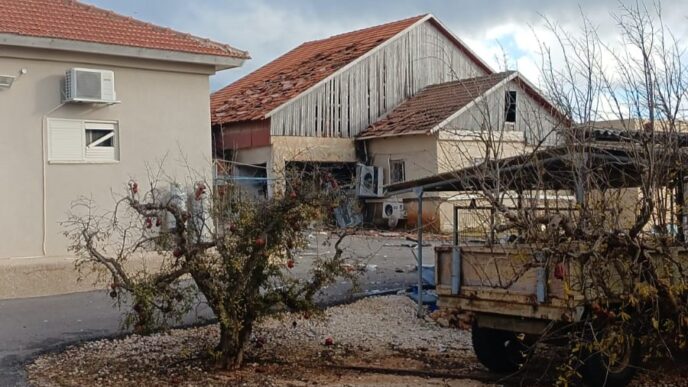
The newest version of the government’s rehabilitation plan for Northern Israel allocates less than one billion shekels ($270 million) in funding despite a promised investment of roughly 3.5 billion shekels ($930 million). The latest iteration of the ‘Tzafona’ plan was passed by the governing coalition at the end of May and is expected to pass through the full Knesset by the end of June. In addition to the lower-than-expected level of funding, the plan also imposes strict requirements on projects seeking to make use of the program’s funds.
The recovery plan approved by the government allocates approximately 980 million shekels ($260 million) for a program to provide grants to residents of the north. Prime Minister Benjamin Netanyahu described the grant program, which is meant to be implemented by the end of the current budget year, as a solution to the immediate needs of Israel’s north, implying that this is the reason why the government did not approve the entirety of the anticipated budget.
The funding for the grant program can only be released after the plan is approved by the Knesset and must be used by the end of 2024, leaving a window of less than six months for the funds to be used. Distributing the funds in that timeframe could prove to be a significant challenge given the government’s decision not to establish a centralized administration for the program, as was done in the Gaza Envelope Rehabilitation Plan. Any funds that have not been fully used by the end of 2024 will require further decisions and approval by the Ministry of Finance.
According to Yossi Keren, Director-General of the Prime Minister's Office, the plan will promote a multi-year outline for the rehabilitation and strengthening of northern communities to be administered by a team within the Prime Minister’s Office consisting of administrators from various government ministries.
In order to use all of the funds promised for the rehabilitation of the north, a sum of about six billion shekels ($1.6 billion), the Ministry of Finance will have to formulate an additional plan and find additional budgetary sources that will be deployed between 2025 and 2029.

The decision came after weeks of discussions and disagreements between the Finance Ministry and other government ministries, as well as between the Prime Minister's Office, which has been responsible for implementing the plan, and leaders of the affected communities. The text of the resolution requests the immediate transfer of 109 million shekels ($29 million) to promote the opening of schools in the north for students who have not been evacuated, as well as the opening of alternative institutions and temporary schools for students who have been evacuated from the north.
The decision will allow parents to register their children in two different areas, both the location to which they have been evacuated and their original address in the north. This will allow parents to either return to their homes or to remain in the places to which they have been evacuated according to the needs of their children.
Tel Hai College is expected to receive 80 million shekels ($21 million), of which 20 million shekels ($5.3 million) will be allocated for future construction and development related to the recently announced transition that will see the college become the University of Kiryat Shmona in the Galilee.
The state is expected to invest about 175 million shekels ($46.5 million) in promoting welfare and therapeutic services for evacuated children and youth. Additionally, so-called ‘resilience centers’ for community and mental health support for evacuees will be given approximately 90 million shekels ($24 million) to recruit community mentors, administrators, National Civil Service volunteers and professional staff in the coming years.
In the field of agriculture, eight million shekels ($2.1 million) will be transferred in grants to recruit new workers into the field. Another 4.5 million shekels ($1.2 million) will be allocated to rebuild damaged chicken coops and 6 million shekels ($1.6 million) to install new remote observation and control systems that farmers can use in times of emergency. The state will invest about 45 million shekels ($12 million) in grants, support and consulting for self-employed owners of small to medium-sized businesses in the affected areas.
In addition to investing in immediate welfare, education, employment, planning and rehabilitation programs, in the coming months the government is expected to approve the transfer of approximately two billion shekels ($530 million) for defense systems and improvements to security infrastructure in the region.
As part of the plan, local authorities in the region will receive 140 million shekels ($37 million) for ongoing needs in addition to the 85 million shekels ($23 million) already transferred. The transfer of funds will be carried out by the Ministry of the Interior.
The multi-year plan, whose total cost is expected to be an additional three billion shekels ($800 million), will be directed to long-term rehabilitation infrastructure, including promoting urban renewal programs, expanding communities, upgrading public infrastructure and more.
The current wording of the plan does not include a detailed explanation of the budget sources or the rehabilitation plan, only general outlines and an instruction for government ministries to begin preparing a plan. However, 20 million shekels ($5.3 million) have already been allocated in the upcoming year’s budget for the rehabilitation and infrastructural development of the north. This amount is also intended to fund staff to map out the needs of northern communities in light of the war and establish a headquarters for civilian inquiries.

The funds and investments in the immediate-term ‘Tzafona’ plan will only be available to residents of communities that were ordered by the Defense Ministry and the IDF to evacuate at the beginning of the war (Resolution 975).
The legal advisor to the Prime Minister's Office, Shlomit Barnea-Farago, acknowledged the fact that many residents of the north who were not evacuated by government orders have suffered and continue to suffer from the ongoing state of the war.
According to Barnea-Farago, at the beginning of May, the state announced that it had begun formulating a bill that would provide a response to communities that were not evacuated. She further stated that despite a number of pending class-action lawsuits by non-evacuated communities for budgetary discrimination, there is no reason to cancel or alter the government’s current plan that has already been approved. Barnea-Farago cited, among other factors, the lack of information on the extent of damages to non-evacuated communities and the plan’s openness to including additional communities in the future.
A similar problem has already arisen in relation to the government’s rehabilitation program for communities along Israel’s border with the Gaza Strip. While new communities may be added to the plan, they do not come with additional budget allocations, which would in practice result in a budget cut for all of the affected communities.
This article was translated from Hebrew by Ronen Cohen.






